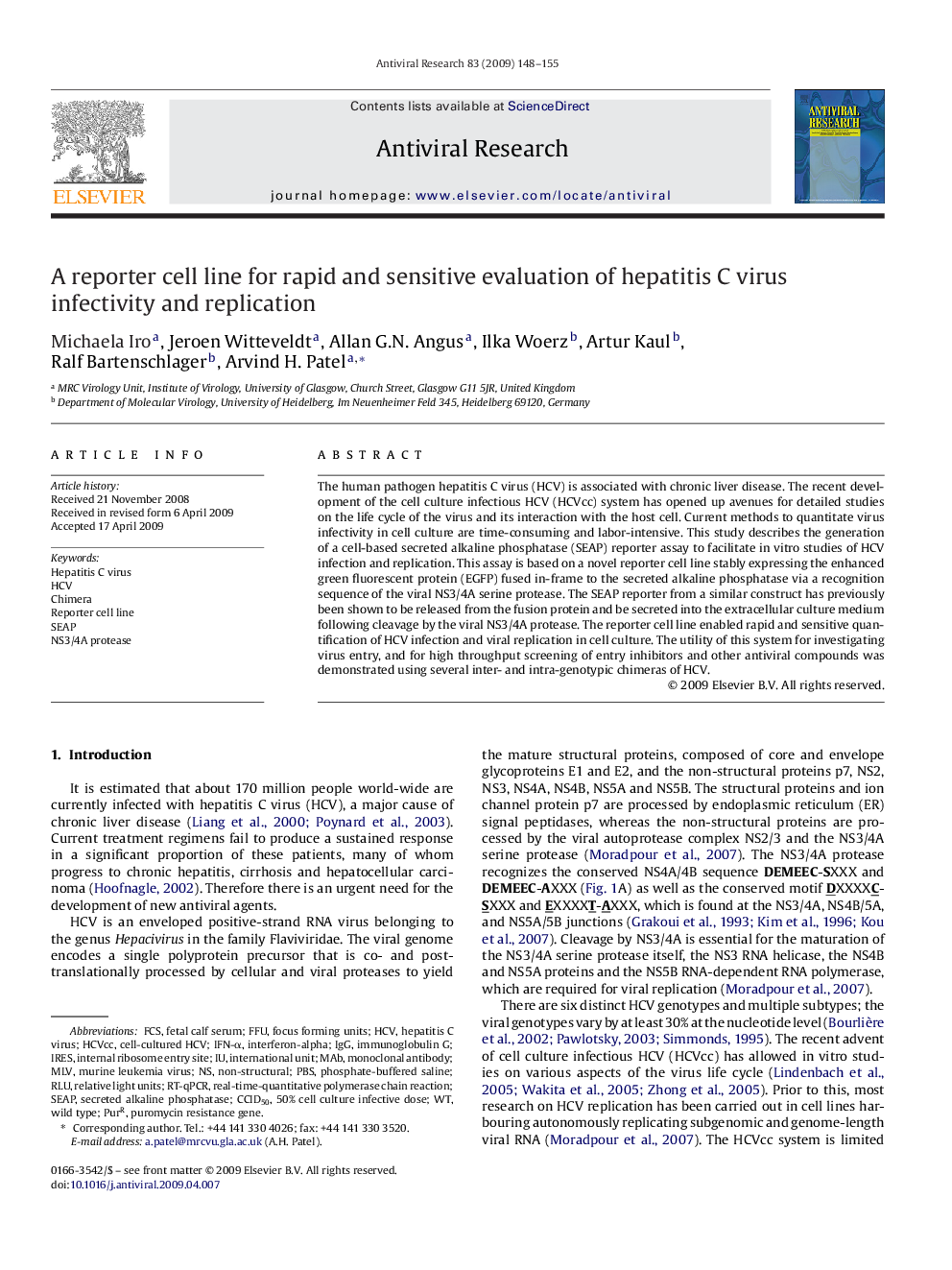| Article ID | Journal | Published Year | Pages | File Type |
|---|---|---|---|---|
| 2510806 | Antiviral Research | 2009 | 8 Pages |
The human pathogen hepatitis C virus (HCV) is associated with chronic liver disease. The recent development of the cell culture infectious HCV (HCVcc) system has opened up avenues for detailed studies on the life cycle of the virus and its interaction with the host cell. Current methods to quantitate virus infectivity in cell culture are time-consuming and labor-intensive. This study describes the generation of a cell-based secreted alkaline phosphatase (SEAP) reporter assay to facilitate in vitro studies of HCV infection and replication. This assay is based on a novel reporter cell line stably expressing the enhanced green fluorescent protein (EGFP) fused in-frame to the secreted alkaline phosphatase via a recognition sequence of the viral NS3/4A serine protease. The SEAP reporter from a similar construct has previously been shown to be released from the fusion protein and be secreted into the extracellular culture medium following cleavage by the viral NS3/4A protease. The reporter cell line enabled rapid and sensitive quantification of HCV infection and viral replication in cell culture. The utility of this system for investigating virus entry, and for high throughput screening of entry inhibitors and other antiviral compounds was demonstrated using several inter- and intra-genotypic chimeras of HCV.
